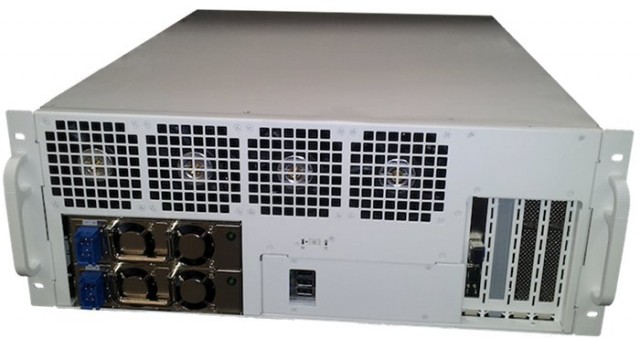Netflix has introduced 3D and Super HD viewing — an improved version of 1080p streamed content — but if you are a Time Warner Cable broadband customer, you will not be able to watch.
Netflix is distributing its highest definition content over its Open Connect CDN network, which minimizes the geographic distance and number of connections between viewers and Netflix’s streaming servers. ISPs can join Netflix Open Connect either by free peering at common Internet exchanges, or save even more in transit costs by putting free storage appliances supplied by Netflix in or near their network.
“OpenConnect provides Netflix data at no cost to the location the ISP desires and doesn’t seek preferential treatment,” Netflix tells GigaOm. “We hope Time Warner will join the many major ISPs around the world who are participating in Open Connect to reduce costs, minimize congestion and improve data delivery to enhance the consumer experience.”
So far, Time Warner Cable has chosen not to participate and accused Netflix of discriminating against its customers.
“While they call it ‘Open Connect,’ Netflix is actually closing off access to some of its content while seeking unprecedented preferential treatment from ISPs,” Time Warner Cable said in a statement to Multichannel News. “We believe it is wrong for Netflix to withhold any content formats from our subscribers and the subscribers of many other ISPs. Time Warner Cable’s network is more than capable of delivering this content to Netflix subscribers today.”
ISP participation in the Netflix Open Connect CDN has proven limited thus far in the United States. Cablevision is the only major cable operator signed on to the content delivery platform. Frontier, Google Fiber and Clearwire also participate. Abroad, Virgin Media, British Telecom, Telmex and Telus also participate.
Netflix’s decision to limit its best streams to participants may be an attempt to force ISPs to take its content delivery network more seriously and enlist subscribers in a push to get additional ISPs on board. By bringing its most watched content directly to ISP’s, the company is attempting to blunt provider arguments for data caps and other viewing limits because the cost to distribute content within a provider’s internal network is negligible.
The necessary hardware powering the Netflix Open Connect CDN is less than you might think. The single device powering Open Connect is easily rack mountable and consists of:

Netflix’s Open Connect CDN hardware
| Chassis | TST custom | 1x |
| Motherboard | Supermicro X9SCM-F | 1x |
| Processor | Intel E3-1260L | 1x |
| Memory | 8GB ECC 1333MHz | 4x |
| Hard Drive | Hitachi Deskstar 5K3000 3TB | 36x |
| Hard Drive (alternate) | Seagate Barracuda 7200.14 3TB | 36x |
| Solid State Drive | Crucial m4 512GB | 2x |
| Controller | LSI SAS 9201-16i 16 port | 2x |
| Network card | Supermicro AOC-STGN-i2S | 1x |
| Redundant Power Supply Unit (AC/DC options) | Zippy MRW-5600V4V/DMRW-5600V4V | 1x |
| Misc. | 2U active CPU Heatsink, SATA Cables, NIC optics |


 Subscribe
Subscribe


 As it turns out, Bob had simply outsourced his own job to a Chinese consulting firm. Bob spent less than one fifth of his six-figure salary for a Chinese firm to do his job for him. Authentication was no problem, he physically FedEx’d his RSA token to China so that the third-party contractor could log-in under his credentials during the workday. It would appear that he was working an average 9 to 5 work day. Investigators checked his web browsing history, and that told the whole story.
As it turns out, Bob had simply outsourced his own job to a Chinese consulting firm. Bob spent less than one fifth of his six-figure salary for a Chinese firm to do his job for him. Authentication was no problem, he physically FedEx’d his RSA token to China so that the third-party contractor could log-in under his credentials during the workday. It would appear that he was working an average 9 to 5 work day. Investigators checked his web browsing history, and that told the whole story.

